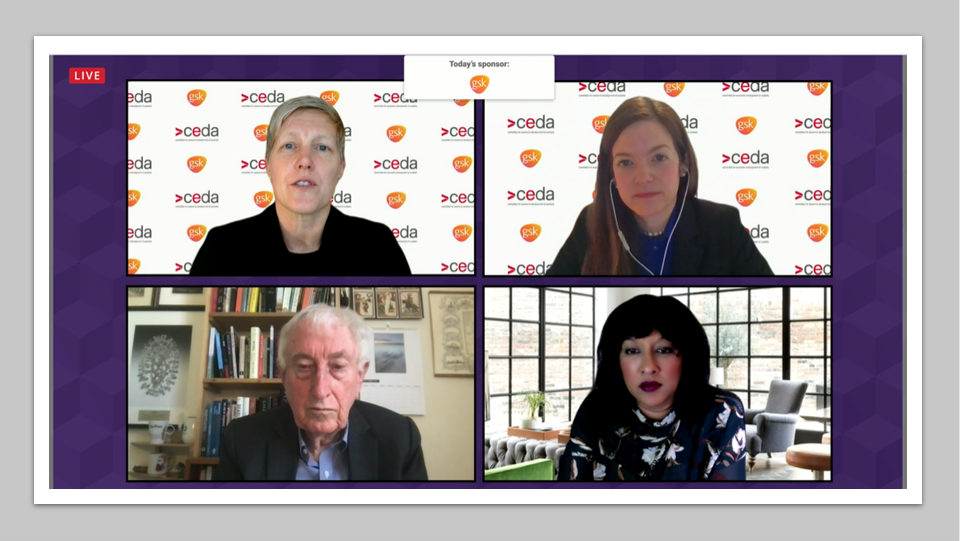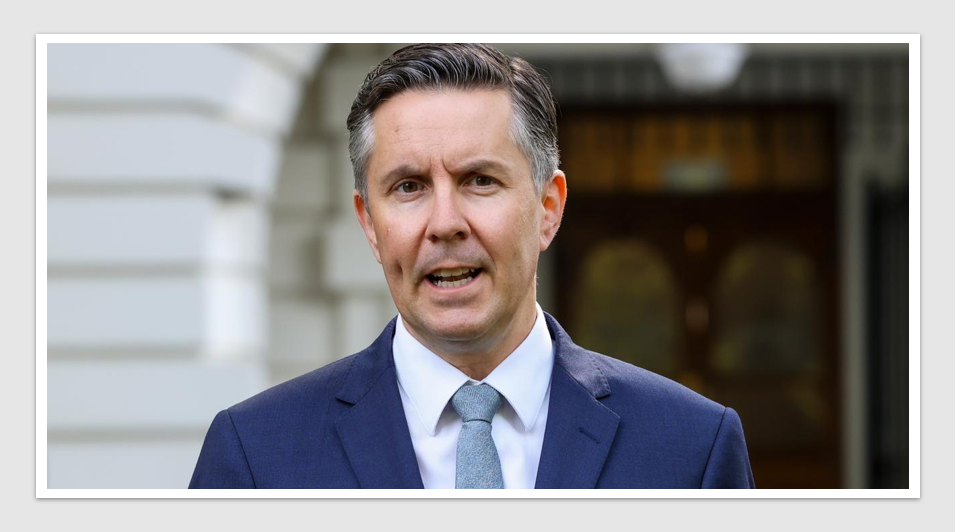News & Trends - Pharmaceuticals
Health experts join GSK leader to discuss Australia’s post-vaccine future

Pharma News: Australia’s long term future in dealing with COVID-19 will include a careful balance of vaccinations, treatments and ongoing infection control measures, according to an expert panel convened by the Committee for Economic Development of Australia (CEDA) and sponsored by GSK Australia.
The panel discussion (“Pandemic to endemic – beyond the jab”) was facilitated by economist Melinda Cilento, who is the CEO of CEDA.
GSK Australia Managing Director, Christi Kelsey, said “There are new questions that we need to think about, specifically, how do we learn to simultaneously manage, but also live with the COVID-19 virus? It is very clear to us that this virus is not going away anytime soon. We need to think beyond the elimination and suppression strategies in this pandemic and talk about what is needed to get to the endemic phase.
“Effective, evidence-based treatments for COVID-19 are an important piece of the puzzle as Australia seeks to lessen the public health impact of the disease. From the GSK perspective, we are very proud to have been involved in research focused on new treatments for COVID-19. Part of the reason I raise this is to highlight the key role that innovative pharmaceutical companies continue to play in our response to COVID-19,” added Kelsey.
Panellist Nobel Laureate Professor Peter Doherty AC, said that effective treatments will continue to be important in management of COVID in future.
“The path forward is vaccination, that is the best option we have available to us. We have been dealing with pandemics for a very long time, but we have never had this tremendous science, this tremendous acuity of diagnosis, rapid development of vaccines and therapeutics including GSK’s sotrovimab (Xevudy).
“We are relying on public health policy and the willingness of as many in the community as possible to go out and take the vaccines that are not made against this current strain delta which is circulating in Australia. Delta is about three times less likely to be stopped by the antibody response, but if we keep the antibodies high from vaccination then the vaccines are dealing pretty well with it.”
Professor Raina MacIntyre, Head of the Biosecurity Program at the University of NSW, said “I have a lot of hope for the future because vaccines are actually one of the most successful public health interventions in history. The vaccine pipeline is dynamic and is not static. We will have booster doses exactly matched to the delta variant which will drive the efficacy right up and reduce the herd immunity threshold.”
She stressed the importance of non-pharmaceutical options as we navigate our way out of pandemic.
“We need more than just vaccines in this interim period. We need to use masks, social distancing and every little measure we can to help reduce contact between people. But we also need to think about clean and safe indoor air. We don’t accept dirty water out of a tap but we accept dirty air all the time. Whether it’s bushfire smoke or viruses, we need to pay a lot more attention to safe indoor air.”
News & Trends - Biotechnology

AusBiotech appoints new CEO: Former Sanofi corporate affairs and sustainability leader takes the helm
Biotech News: AusBiotech, the nation’s leading industry body for the biotech sector, has named former leader at Sanofi, Rebekah Cassidy, […]
MoreNews & Trends - MedTech & Diagnostics

Federal government invests in Siemens Healthineers scanner to ‘reduce wait times’ for cancer diagnosis
MedTech & Diagnostics News: The Albanese Government is investing $12 million through the 2024–25 Budget, to purchase and install a […]
MoreNews & Trends - MedTech & Diagnostics

Cardiac device benefits face more cuts, while technical services remain secure in the short term
MedTech & Diagnostics News: Starting from July 2024, Cardiac Implantable Electronic Devices (CIED) listed on the Prescribed List (PL) will […]
MoreNews & Trends - Biotechnology

CSL’s world-first gene therapy heads for MSAC evaluation
Biotech News: CSL’s world-first gene therapy for haemophilia B is scheduled for consideration at the upcoming Medical Services Advisory Committee (MSAC) […]
More